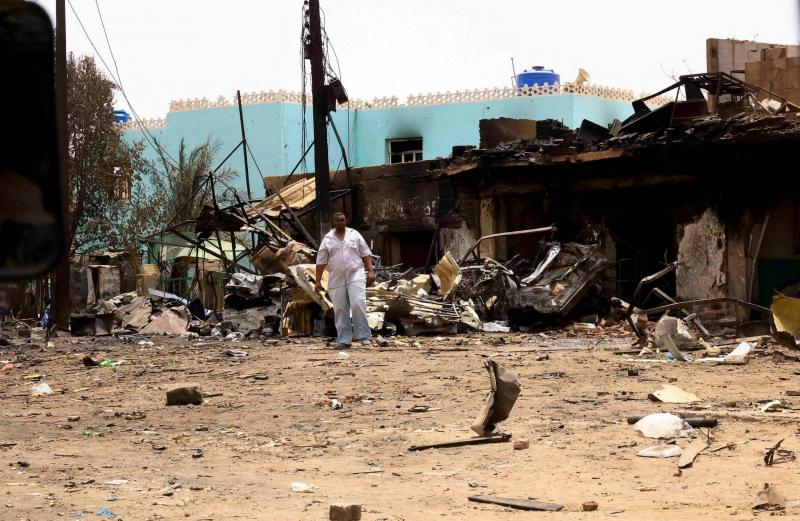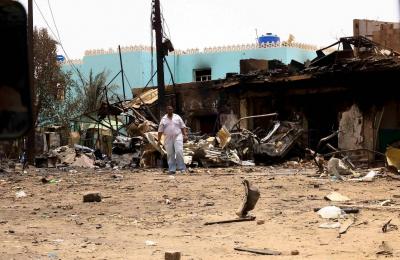Residents in the Sudanese capital Khartoum reported intense airstrikes in the city center amid a rise in looting, while Saudi Arabia announced that negotiators are working on a short-term ceasefire. Witnesses noted that the military conducted extensive airstrikes in central Khartoum and around the presidential palace. Rapid Support Forces claimed that the palace, which they say they control, was hit in an airstrike and destroyed, but a military source denied this. They reported that "fighting escalated in the Sudanese capital today, Wednesday, amid intense clashes and airstrikes." Residents spoke of ground confrontations in several neighborhoods of Khartoum between the conflicting parties and heavy gunfire exchange in northern Omdurman and eastern Bahri, two cities separated from Khartoum by the Nile River.
The United Nations World Food Programme forecasted on Wednesday that up to 2.5 million Sudanese could face hunger in the coming months due to the ongoing conflict, raising the number suffering from acute food insecurity to 19 million. The two warring parties, which have failed to adhere to repeated truce agreements, sent representatives to talks in Jeddah, Saudi Arabia, on Saturday. The Saudi state television channel Al-Ekhbariya reported in its first report regarding the talks, citing the Saudi foreign ministry on Tuesday, that the negotiations aim for a "short-term constructive ceasefire."
With warnings that Sudan is on the verge of a humanitarian catastrophe, a United Nations spokesperson stated that the organization's aid chief Martin Griffiths proposed that both warring parties in Sudan support a "commitment declaration" to ensure the safe passage of humanitarian relief supplies, which was suggested for discussion in Jeddah. Farhan Haq, the deputy spokesperson for the UN Secretary-General, added that "Griffiths hopes to endorse the declaration as soon as possible to rapidly and safely scale up relief operations to meet the needs of millions in Sudan." The UN estimates that an additional five million people will need emergency assistance within Sudan, while 860,000 are expected to flee to neighboring countries already facing crises, as wealthy nations have reduced their aid.




